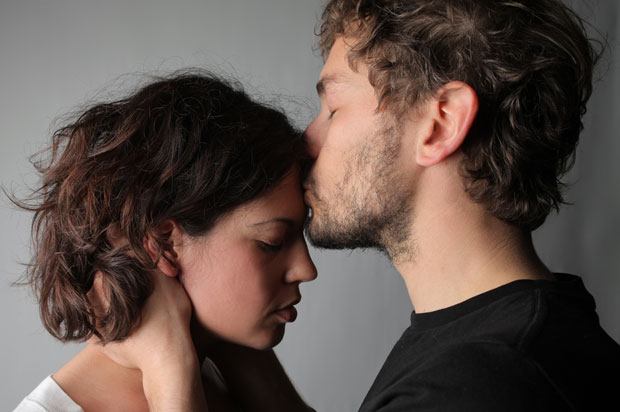Rape myths
Rape is a highly emotive issue, but it's also a massively misunderstood one. We're here to set the record straight.

Stranger danger? Most rapes are committed by someone known to the victim.
Statistics from The British Crime Survey reveal that 89% of rapes go unreported, and 38% of victims don’t tell anyone. We think this is because of persistent myths about rape – like the idea that a woman was ‘asking for it’ if she was drunk, or wearing a short skirt. So we spoke to Jo Wood, a Rape Crisis worker, to help uncover the truth.
Myth 1: Rape happens in dark alleyways and is done by violent strangers
Mostly false
Yes, this does happen, but it’s very rare. In fact, 97% of calls to the Rape Crisis helpline are from victims who knew their attackers. Most likely they were friends, partners, colleagues, or ex-partners. Over 80% of rapes happen at home, but victims are often too scared to tell anyone for fear they won’t be believed.
“We need to get away from this myth that rape is a stranger jumping out of the bushes,” says Jo. “This goes against everything we’re told, but it’s the reality. We need to re-educate society to understand this.”
Myth 2: Women who wear short skirts, have slept around, or ‘led someone on’ are asking for it
False
Nobody ever asks to be raped. A woman may be wearing only lingerie, have slept with 200 million people and already given her rapist oral sex, but that doesn’t mean she wants to be raped. Blaming women for their behaviour is only distracting blame from the rapist. And it’s only the rapist that’s committed a crime.
Myth 3 – Women lie about being raped
Mostly false
Rape victims are often accused of ‘crying rape’ and making up false allegations out of spite. But lying about rape actually happens very rarely. In the Stern Review into rape, a CPS lawyer said false accusations are “extremely rare,” and an experienced police officer said he’s only seen two such cases in 15 years.
Myth 4 – You can’t be raped by your boyfriend or husband
False
Going out with someone doesn’t mean you’re signing some kind of penetration waiver. In fact, Home Office statistics shows 56% of rapes were committed by either a partner or former partner.
“Rape in relationships is a form of domestic violence,” says Jo. “Again, lots of victims are scared to come forward because they think no one is going to believe them. It may happen 20-40 times before they finally call us.”
Myth 5 – When men get horny, they just can’t stop themselves
False
Firstly – well, put it this way, if their mother walked in, we’re sure any man would calm down pretty quickly. Playing the ‘but I couldn’t stop myself’ card is just a way of trying to avoid blame.
Secondly – rapes are quite often premeditated. It’s rarely a random act. “Rapists groom people similar to how a paedophile grooms children,” says Jo. “They target vulnerable people and often groom victims over a long period of time.”
Myth 6 – If you don’t fight back, it’s not rape
False
Can you honestly say exactly how you would act if you were being raped? Often victims are so scared they’re focusing only on getting through the next couple of seconds. In fact, physical force is only used in a reported 64% of rapes, and the victim is beaten in only 9% of attacks. NOT CONSENTING makes it rape – not a cut lip or black eye.
Myth 7 – Rape is about sex
False
“Rape isn’t about sex,” says Jo. “It’s a crime of power and oppression. It’s assault using a weapon.”
Rapists don’t rape because they want or need sex. It’s because it’s the ultimate way to overpower and humiliate someone.
Myth 8 – Men don’t get raped
False
The Office of National Statistics estimates 3.5% of the male population have been sexually assaulted. Again, rape is about power, not sex or sexuality – being raped by another man doesn’t ‘make you’ gay, and both gay and straight men can be victims of rape. Women can’t, technically, be rapists (UK law defines rape as being done with a penis). But they can be convicted of other offences, like sexual assault or assault by penetration.
Myth 9 – It’s not rape if you were drunk
False
Actually, if you were too drunk to know what you were doing, the law considers it rape. The Sexual Offences Act 2003 defines consent as when the victim “agrees by choice, and has the freedom and capacity to make that choice”. If you’re absolutely wasted, you don’t have the capacity to consent.
Drinking alcohol shouldn’t – but does – increase the risk of sexual assault and rape. However, the fact you were drunk should never be used against you, by others – or even yourself.
Myth 10 – If you’re not upset afterwards then it’s not rape
False
In media-created fairytales of how a rape victim is supposed to behave, they always cry, go straight to the police, and get the rapist jailed. But there is absolutely no ‘right’ way to handle getting raped.
“Most victims don’t run away screaming ‘I’ve been raped’. It may take them a long time to tell someone, or they may just go on living their life like nothing’s happened. It doesn’t mean that they’re making it up,” says Jo.
Next Steps
- Rape Crisis offers support and advice to victims of rape and sexual assault, no matter how long ago the attack was. 0808 802 99 99
- Find your nearest Rape Crisis centre here.
- Chat about this subject on our Discussion Boards.
- Need help but confused where to go locally? Download our StepFinder iPhone app to find local support services quickly.
By
Updated on 29-Sep-2015
Photo of intense couple by Shutterstock
No featured article














